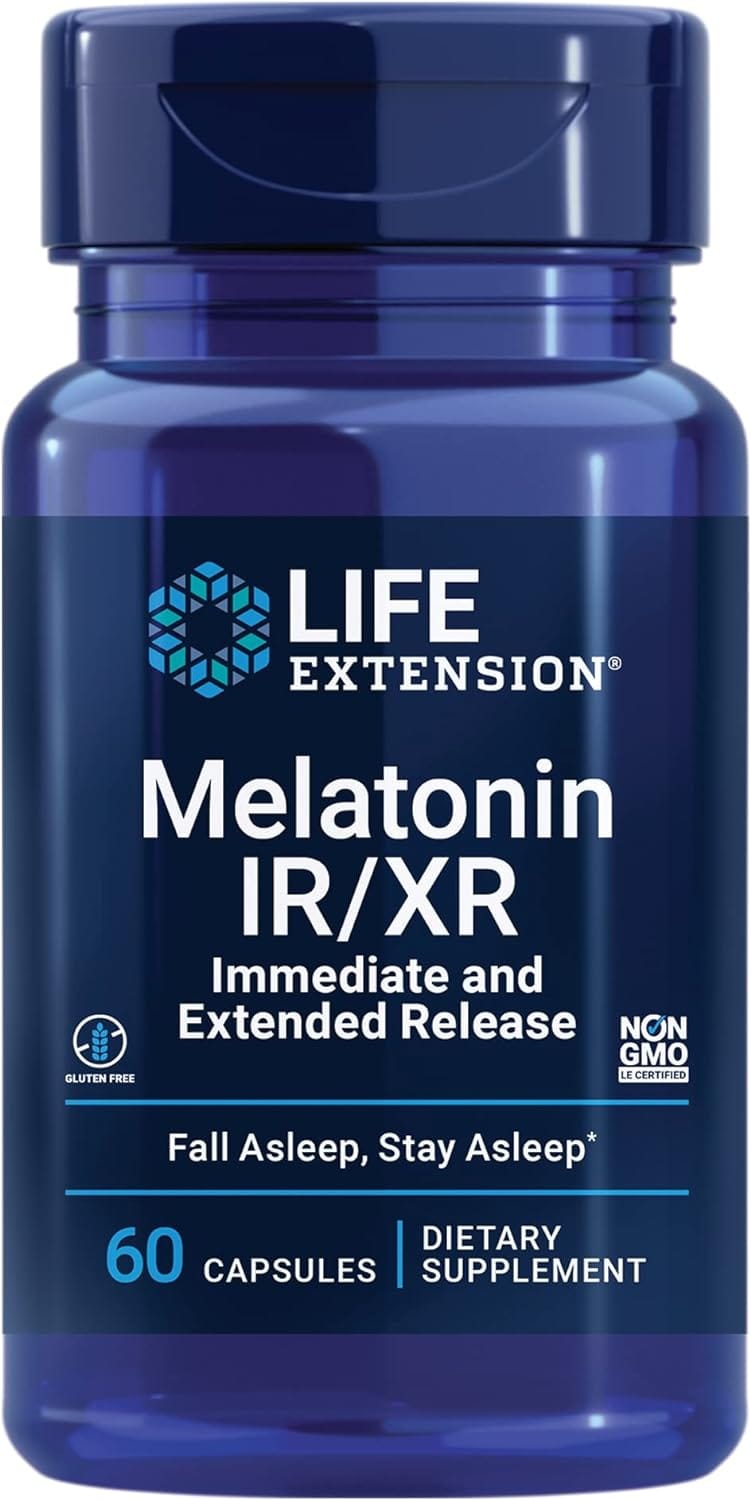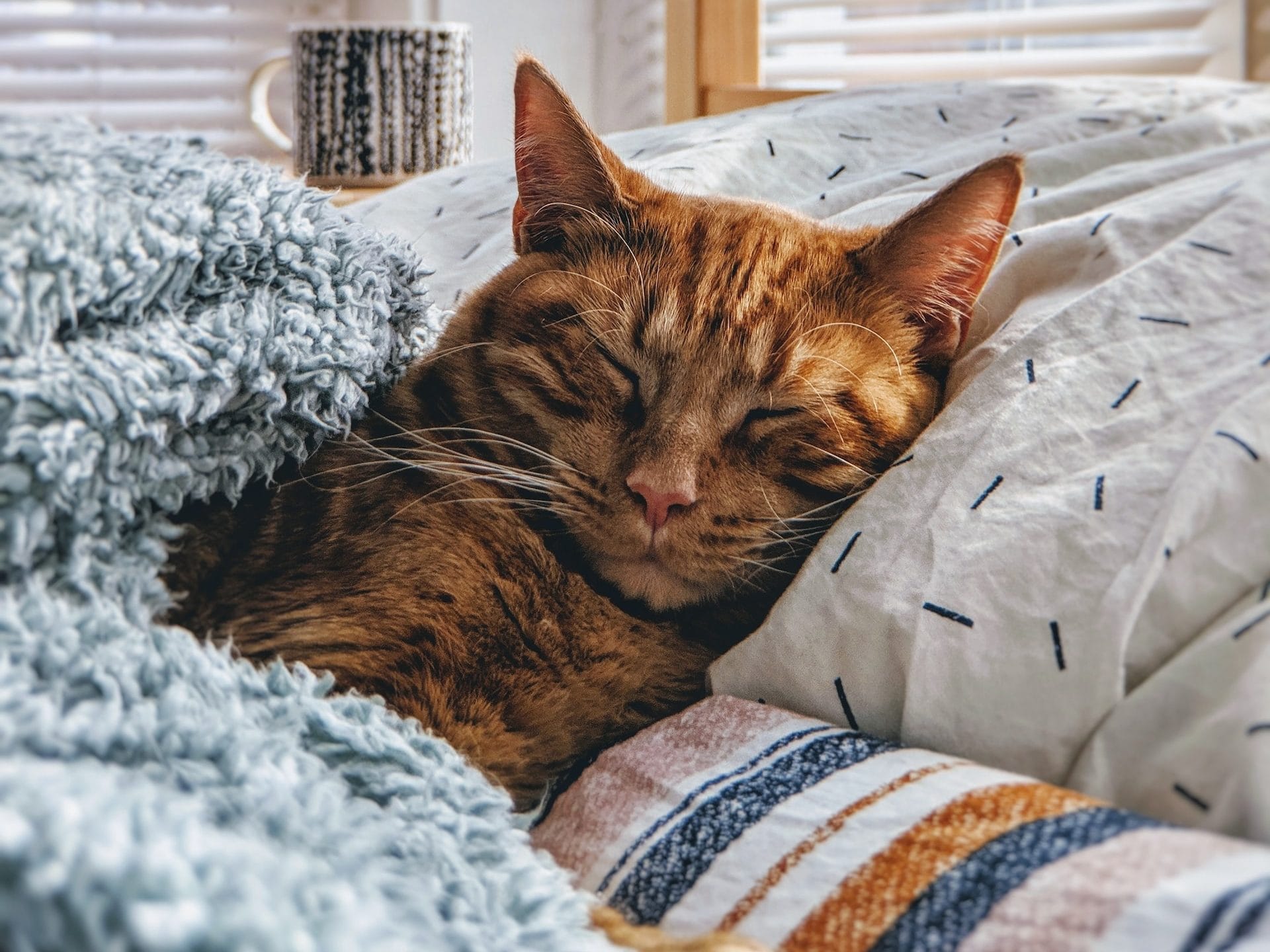We tell you how to calculate one of the most important indicators of your health.
Feeling tired and anxious all the time?
Do you have headaches, drowsiness, and no energy for anything?
There is no need to learn the symptoms on Google, different scary diseases, because most likely the cause of your ailments lies in the regular lack of sleep.
Together with Gosha Semenov, CEO of Blue Sleep, we will figure out how to assess the quality of your sleep and what to do with this knowledge in practice.

Life Extension Melatonin IR/XR – Immediate & Extended-Release Melatonin – 7 Hours Support
- PROMOTES UNINTERRUPTED SLEEP – Melatonin promotes healthy sleep/wake patterns and encourages the onset, duration and quality of sleep.
- FAST ACTING – Taken about 30 minutes before bed, Melatonin IR/XR helps you fall asleep quickly and stay asleep all night long.
- INGREDIENTS MATTER – Sourced using only the finest raw ingredients with the purity and potency your body deserves. This product is certified non-GMO and gluten-free.

Rate your sleep from 1 to 10 points
People tend to embellish reality, so many people believe that they get enough sleep.
They claim to have no problems with their sleep quality.
In 2014, scientists at the University of Pittsburgh conducted a sleep study, for which they developed a simple questionnaire.
It allows a fairly accurate and simple assessment of how well a person sleeps.
It is called SATED – by the first letters of the five key indicators of sleep quality, each of which is related to health.
Here are the indicators in question:
- Satisfaction with sleep
- Alertness during waking hours
- Timing of sleep
- Efficiency
- Duration.
You should assess your sleep according to these measures over the past month.
Answer the following questions:
1. Are you satisfied with your sleep?
Answer options:
Rarely satisfied (0 points),
Sometimes satisfied (1 point)
Always satisfied (2 points)
2. Are you able to stay awake throughout the day without resorting to coffee or daytime naps?
Answer options:
Rarely succeeds (0 points),
Sometimes I manage (1 point),
Always succeed (2 points)
3. Do you sleep between 2 a.m. and 4 a.m.?
Answer options:
Rarely (0 points)
Sometimes (1 point)
Always (2 points)
4. Do you spend less than 30 minutes at night without sleep?
This includes both the time to fall asleep and the minutes when you wake up in the middle of the night and can’t go back to sleep.
Answer options:
Rarely (0 points)
Sometimes (1 point)
Always (2 points)
5. Do you sleep 6 to 8 hours a night?
Answer options:
Rarely (0 points),
Sometimes (1 point),
Always (2 points)
Count the number of points you scored.
0 points signal a very low quality of sleep.
10 points indicate that there is nothing wrong with your sleep.
Which number are you closer to?
If you have trouble sleeping, you should start taking melatonin

Life Extension Melatonin IR/XR – Immediate & Extended-Release Melatonin – 7 Hours Support
- PROMOTES UNINTERRUPTED SLEEP – Melatonin promotes healthy sleep/wake patterns and encourages the onset, duration and quality of sleep.
- FAST ACTING – Taken about 30 minutes before bed, Melatonin IR/XR helps you fall asleep quickly and stay asleep all night long.
- INGREDIENTS MATTER – Sourced using only the finest raw ingredients with the purity and potency your body deserves. This product is certified non-GMO and gluten-free.

How others sleep
Blue Sleep surveyed its customers on this scale.
The results showed that only 7.3% sleep at 10 out of 10, while 8.8% of those surveyed rated their sleep at 9.
The study found that one in ten people sleep poorly or very poorly:
Not getting enough sleep, feeling very tired by evening.
Nevertheless, they wake up in the middle of the night and cannot go back to sleep.

Life Extension Melatonin IR/XR – Immediate & Extended-Release Melatonin – 7 Hours Support
- PROMOTES UNINTERRUPTED SLEEP – Melatonin promotes healthy sleep/wake patterns and encourages the onset, duration and quality of sleep.
- FAST ACTING – Taken about 30 minutes before bed, Melatonin IR/XR helps you fall asleep quickly and stay asleep all night long.
- INGREDIENTS MATTER – Sourced using only the finest raw ingredients with the purity and potency your body deserves. This product is certified non-GMO and gluten-free.

What happens to people who sleep less than necessary
Let’s say you get a score of 5 or 6, which doesn’t seem like a lot.
Then maybe you don’t need to change anything.
Neuroscientist and sociologist Matthew Walker disagrees.
In his book Why We Sleep.
The New Science of Sleep and Dreams, the expert, explains what happens to people who sleep less than necessary.
The need for sleep is inherent in us on a chemical level.
When a person wants to sleep, a chemical called adenosine builds up in the brain.
While we are awake or struggling with sleep, the concentration of adenosine increases – and we want to sleep more and more.
Over time, adenosine becomes so abundant that one is overcome by an irresistible urge to sleep.
This inevitably happens if we don’t sleep more than 12-16 hours.
How do you decrease the concentration of adenosine?
Very simple: go to sleep.
It is in sleep that the active breakdown of this substance takes place.
An adult needs about eight hours of healthy, quality sleep to “adenosine cleanse”.
After a good night’s sleep and complete removal of adenosine from the body, we are ready for about 16 hours of wakefulness – clear thinking and physical activity.
If a person doesn’t get enough sleep, adenosine doesn’t have time to be broken down and its concentration remains high.
This can be compared to unpaid interest on a loan: some amount of the adenosine from yesterday is left over in the morning, but it doesn’t prevent a new dose from being produced.
If you don’t get enough sleep again the next night, the concentration gets even higher – just as with late payments, your sleep debt piles up.
But the longer this happens, the worse you feel.
One ends up with chronic sleep deprivation, which makes one feel constantly tired.
He thinks and concentrates worse.
Not to mention the health risks: it is scientifically proven that sleep deprivation can lead to some physical and mental disorders



